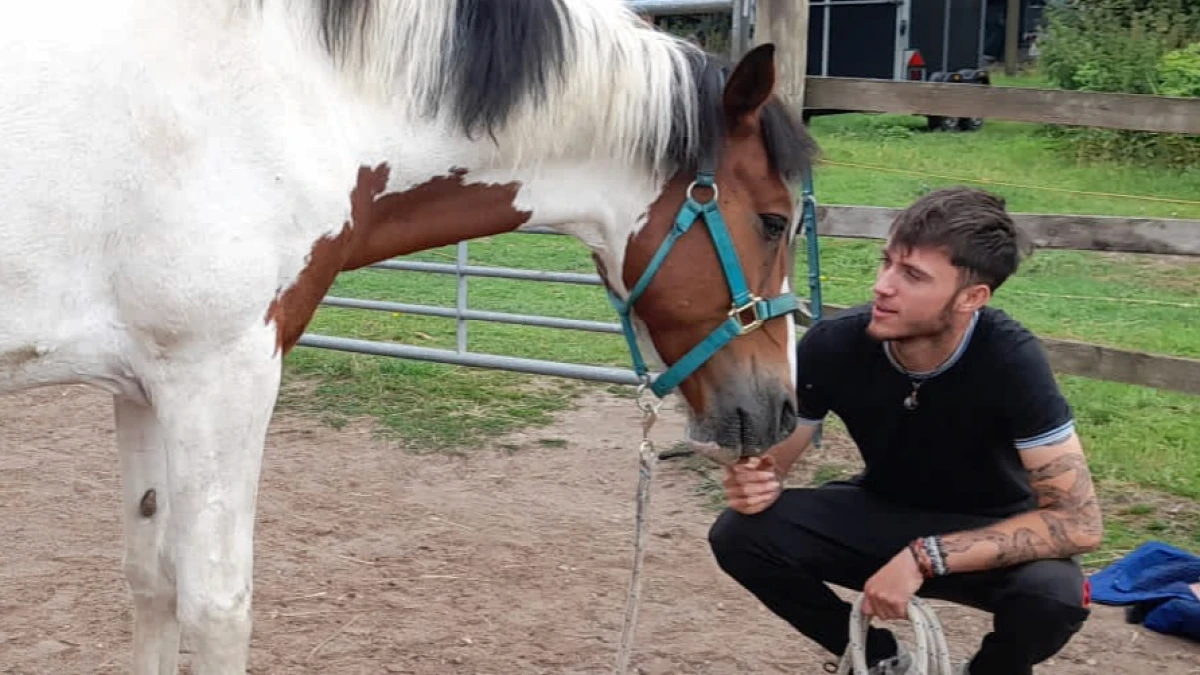Top Tips for First-Time Horse Owners: How Equine Insurance Can Give You Peace of Mind
Oct 23, 2024 by Jamie Finch

Being a first-time horse owner is an exciting and rewarding experience.
Whether you're an experienced rider or new to the world of horses, there's nothing quite like building a bond with your horse.
However, this excitement comes with many different responsibilities. Owning a horse requires a substantial investment of time, effort, and money, and one crucial aspect new owners often overlook is equine insurance.
Like other major investments, insuring your horse can save you from becoming stressed and ending up in a financial hardship in the long run.
Why Equine Insurance is Essential for First-Time Horse Owners
Horses are unpredictable by nature.
No matter how carefully you care for them, accidents, injuries, or illnesses can happen at any time.
These risks may not be immediately apparent for first-time owners, but equine insurance can help mitigate them.
A single unexpected vet bill can quickly reach the thousands, whether due to an injury, illness, or other health emergencies.
Without proper insurance, covering these expenses could become overwhelming. Equine insurance ensures that you're financially prepared for such events.
Moreover, equine insurance can protect you from the costs associated with public liability claims.
You could be held responsible if your horse damages someone's property or injures another person.
Insurance can cover these legal and compensation costs, saving you from potentially devastating financial losses.
Pros and Cons of Having Equine Insurance
Pros:
Financial Protection: Vet bills for treating injuries or illnesses can be incredibly expensive, and insurance can help you avoid hefty out-of-pocket expenses.
Peace of Mind: Knowing that you're covered for unexpected events, such as accidents or liability claims, allows you to enjoy horse ownership without constant worry.
Public Liability Coverage: This is crucial for covering damages or injuries caused by your horse, offering a safeguard against potential legal and financial repercussions.
Theft or Death Coverage: Certain insurance policies can compensate for the financial loss if your horse is stolen or dies unexpectedly.
Loss of Use Coverage: If your horse can no longer fulfil its intended purpose (e.g., riding or competition), this type of insurance can offer financial compensation.
Cons:
Cost: Insurance premiums can add up, especially if you opt for comprehensive coverage. The more coverage you seek, the higher the cost will be.
Exclusions and Limitations: Not all conditions or treatments, especially pre-existing conditions or elective procedures, may be covered. Reading the fine print is crucial to ensure you know what is excluded.
Deductibles and Co-Payments: Even with insurance, you might still have to cover a portion of the vet bills or other expenses, depending on your policy.
Claim Restrictions: Some policies have caps on the amount you can claim per incident or per year, which may not cover all costs in severe cases.
Types of Equine Insurance: What Do You Really Need?
Choosing the right equine insurance policy depends on your needs and the specific risks you want to mitigate.
Here's an overview of the most common types:
Veterinary Fee Cover: This is one of the most essential types of coverage, especially for first-time owners. It helps cover unexpected vet bills due to accidents, illnesses, or injuries. Vet bills can be exorbitant, so having this insurance can be a lifesaver.
Public Liability Insurance: This protects you if your horse injures someone or damages property. Even if your horse is kept privately, public liability insurance is crucial as accidents can happen, and the resulting costs could be high.
Death or Theft Cover: This policy compensates you if your horse is stolen or dies due to injury or illness. For many owners, their horse is not just a pet but an emotional and financial investment, so this insurance offers peace of mind.
Loss of Use Insurance: If your horse becomes unable to perform its intended purpose (e.g., riding or competing), this coverage compensates you for its reduced value. This is particularly useful for horses used in competitions or professional settings.
Is Equine Insurance Worth It?
The value of having equine insurance lies in the financial protection and peace of mind it offers.
As a horse owner, you're not just responsible for daily care but also for the well-being of your horse in case of emergencies.
Without insurance, you could face overwhelming costs for veterinary treatments, especially for injuries or health issues that require surgery or long-term care.
For example, common injuries such as tendon strains or fractures can lead to treatment costs running into the thousands.
Equine insurance can alleviate much of this financial burden, allowing you to focus on your horse's recovery rather than the costs.
Insurance also covers public liability.
If your horse were to escape and cause a road accident, injure a passerby, or damage someone's property, the legal costs could be substantial.
With liability insurance, these incidents are covered, protecting you from potentially devastating expenses.
Making the Most of Your Equine Insurance Policy
Once you've secured equine insurance, it's essential to ensure you're making the most of your policy:
Regularly Review Your Policy: As your horse's needs change—whether they're ageing or becoming more active in competitions—update your insurance to ensure you have the appropriate coverage.
Stay Up to Date with Vet Visits: Many policies require regular veterinary check-ups to remain valid. Keep your horse's medical records and vaccinations up to date.
Understand the Claims Process: Knowing how to make a claim will save you time and stress in an emergency. Ensure you're familiar with the process and prepared should an incident occur.
Conclusion
Equine insurance isn't a luxury—it's a necessity for many horse owners, especially first-time owners.
While there are upfront costs and potential limitations, the financial protection and peace of mind it offers make it invaluable.
You never know when an accident, illness, or unexpected event might occur, and having the right insurance ensures you're prepared to handle whatever comes your way.
Ultimately, equine insurance protects not only your finances but also your relationship with your horse, allowing you to focus on the joys of ownership rather than the risks.
Explore More Topics
10 Essential Groundwork Exercises to Improve Equine Agility
This blog post, "10 Essential Groundwork Exercises to Improve Equine Agility," provides a comprehensive guide for horse owners looking to enhance their horse's agility, coordination, and responsiveness through progressive groundwork. Each exercise includes step-by-step instructions, explains why the exercise is important for building trust, focus, and physical conditioning, and details how these skills translate into improved performance in agility courses and other equestrian pursuits.
Oct 28, 2024
The Importance of Groundwork: Building Trust and Communication with Your Horse
This article explores the importance of groundwork in building trust and communication between horse and rider. It covers the basics of groundwork, explains how it strengthens the horse’s confidence and respect, and offers key exercises such as leading, desensitisation, and lunging. The article also highlights the role of body language and how groundwork prepares horses for ridden work, improving safety, focus, and obedience.
Sep 10, 2024
Patience in Natural Horsemanship
Cultivate a harmonious horse-human relationship with the transformative power of patience in natural horsemanship. Explore the importance of understanding, communication, problem-solving, and trust building in your equestrian journey
Nov 3, 2023







